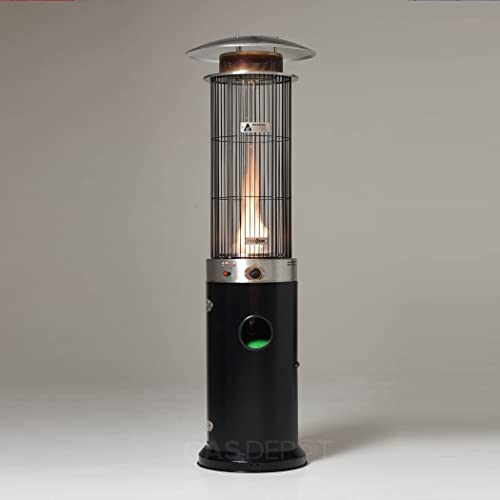The 3 Greatest Moments In Heating Equipment History

Understanding Heating Equipment: Types, Applications, and Considerations
Heating equipment plays a vital function in maintaining comfortable living and working environments. Whether in residential or commercial settings, efficient heating systems are vital for health, convenience, and productivity. This short article explores different types of heating equipment, their applications, and essential factors to consider for choosing the best heating unit for particular needs.
Types of Heating Equipment
Heating equipment can be broadly classified into various categories based on fuel type, heating technique, and application. Below are the most typical types:
| Type of Heating Equipment | Description | Common Applications |
|---|---|---|
| Heating systems | A combustion heater that warms air and distributes it through ducts. | Residential homes, commercial structures. |
| Boilers | Heats water to produce steam or hot water for heating space or providing hot water. | Radiant heat, industrial processes. |
| Heat Pumps | Transfers heat from the air, ground, or water, using electrical energy to facilitate cooling and heating. | Residential homes, zoning systems. |
| Radiant Heaters | Warms things straight without heating the air in between, often through electric coils or hot water. | Homes, health clubs, workshops. |
| Space Heaters | Portable heaters that offer direct heat to a small location. | Homes, garages, workshops. |
| Water Heaters | Warms water for domestic usages, can be tankless or storage types. | Residential restrooms, cooking areas. |
1. Heaters
Furnaces are among the most typical heater, especially in colder climates. They can be powered by different fuels, including natural gas, propane, oil, or electrical power. This equipment runs by heating air and dispersing it through ductwork.
Advantages of Furnaces:
- Efficient heating throughout big spaces.
- Can be integrated with a/c systems for year-round climate control.
2. Boilers
Boilers are substantial for heating water and producing steam for central heating systems. Unlike furnaces, which heat air, boilers flow hot water or steam through pipes to radiators or underfloor heating systems.
Advantages of Boilers:
- Provide even heat circulation and keep humidity levels.
- Can make use of renewable resource sources, such as wood pellets or solar energy.
3. Heat Pumps
Heat pumps, typically thought about flexible, can effectively heat and cool areas. These systems work by drawing out heat from outside sources (even in winter) and moving it inside.
Benefits of Heat Pumps:
- Energy efficient and can result in lower utility costs.
- Ecologically friendly as they make use of renewable resource.
4. Radiant Heaters
Radiant heat systems are developed to heat things straight without warming the surrounding air. This technique is frequently more efficient, as it reduces heat loss.
Benefits of Radiant Heaters:
- Offer focused heating for targeted locations.
- Improve convenience by maintaining more constant temperatures.
5. Space Heaters
Space heaters are portable units that offer additional heat in localized locations. They can be electrical, propane-fed, or kerosene-based.
Benefits of Space Heaters:
- Cost-effective for heating little areas.
- Flexibility to move as required for convenience.
6. Hot water heater
Water heaters are important for providing hot water for domestic use, consisting of bathing, cooking, and cleaning. They can be found in various types, including tankless, solar, and conventional tank-style heaters.
Benefits of Water Heaters:
- Essential for daily hygiene and home comfort.
- Energy-efficient options readily available.
Secret Considerations When Choosing Heating Equipment
Picking the ideal heating equipment is crucial for efficiency and comfort. Here are some essential factors to consider to bear in mind:
- Energy Source: Assess the accessibility and expense of numerous fuel sources in your area. Natural gas tends to be more efficient, while electric systems might provide benefit.
- Size Requirements: Select a system sized appropriately for your space. Undersized units might struggle to heat sufficiently, while large designs can cause ineffective heating and greater energy costs.
- Energy Efficiency: Look for equipment with high energy performance scores. Gadgets with ENERGY STAR labels can assist with expense savings and environmental conservation.
- Setup and Maintenance Costs: Consider both in advance purchase expenses and long-lasting maintenance costs. Some systems might have greater preliminary expenses however lower functional expenditures.
- Ecological Impact: Evaluate options that decrease carbon emissions and minimize overall environmental footprints, such as solar hot water heater or heat pumps.
Often Asked Questions (FAQs)
What is the most efficient kind of heating equipment?
The performance can vary, but heatpump are generally thought about extremely efficient, especially in milder climates. visit the next site can offer significant energy savings compared to conventional heating methods.
How typically should heating equipment be serviced?
Generally, it is recommended to service heating systems a minimum of when a year. Routine maintenance guarantees efficient operation, durability, and safety.
How can I improve the effectiveness of my heating unit?
- Frequently modification or tidy filters.
- Seal leakages in ducts and windows.
- Use programmable thermostats to regulate temperature levels successfully.
Exist environment-friendly heating options readily available?
Yes, options such as solar water heaters, biomass boilers, and geothermal heatpump provide ecologically friendly heating solutions that utilize sustainable resources.
What size heating system do I require for my home?
The size will depend upon different aspects, including the home's square footage, insulation quality, and regional climate. An HVAC specialist can perform a load computation to figure out proper sizing.
Heating equipment is a vital aspect of building comfort and effectiveness. With various options readily available, comprehending the types and their applications is vital for making informed choices. By considering energy sources, equipment sizing, efficiency, and ecological effects, property owners and organizations can ensure their heating systems satisfy their requirements effectively.
In conclusion, the very best heating service often involves stabilizing initial costs, functional effectiveness, and environmental factors to consider-- ensuring a warm and comfortable living environment for many years to come.

